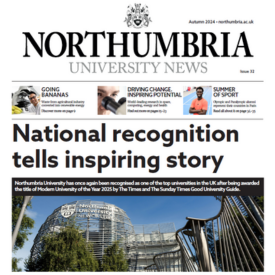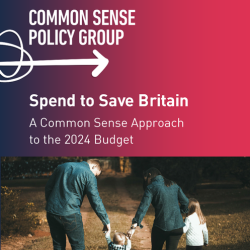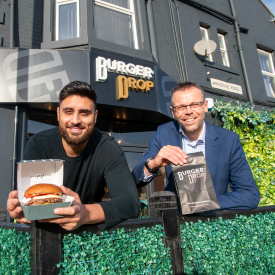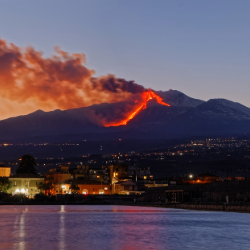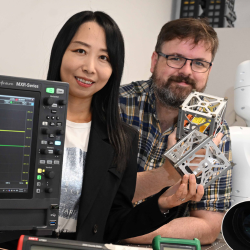-
Study
-
Undergraduate
- Search for a Course
- Undergraduate Open Day & Events
- Application Guides
- Northumbria University UCAS Exhibitions
- Foundation Years
- Undergraduate Fees & Funding
- School & College Outreach
- Continuing Professional Development
-
Postgraduate
- Postgraduate Study Degree
- Postgraduate Research Degrees
- Postgraduate Open Days and Events
- Postgraduate Fees & Funding
- Flexible Learning
- Thinking about a Masters?
- Continuing Professional Development
- Change Direction
-
Student Life
- The Hub - Student Blog
- Accommodation
- Life in Newcastle
- Support for Students
- Careers
- Information for Parents
- Students' Union
- Northumbria Sport
- Be Part of It
-
-
International
International
Northumbria’s global footprint touches every continent across the world, through our global partnerships across 17 institutions in 10 countries, to our 277,000 strong alumni community and 150 recruitment partners – we prepare our students for the challenges of tomorrow. Discover more about how to join Northumbria’s global family or our partnerships.
View our Global Footprint-
Applying to Northumbria
- European Union
- Our London Campus
- Northumbria Pathway
- International Events
- Entry Requirements and Country Representatives
- Regional Offices
-
Northumbria Language Centre
- Faculty Requirements
- Acceptable English Requirements
- Pre-sessional English Language and Study Skills
- Academic Language Skills Programmes (ALS)
-
International Fees, Funding & Scholarships
- International Undergraduate Fees
- International Undergraduate Funding
- International Masters Fees
- International Masters Funding
- International Postgraduate Research Fees
- International Postgraduate Research Funding
- International Money Matters
-
Life at Northumbria
- International student support
- Careers
-
International Mobility
- Current Northumbria Students
- Incoming Exchange Students
-
-
Business
Business
The world is changing faster than ever before. The future is there to be won by organisations who find ways to turn today's possibilities into tomorrows competitive edge. In a connected world, collaboration can be the key to success.
More on our Business Services -
Research
Research
Northumbria is a research-rich, business-focused, professional university with a global reputation for academic quality. We conduct ground-breaking research that is responsive to the science & technology, health & well being, economic and social and arts & cultural needs for the communities
Discover more about our Research -
About Us
-
About Northumbria
- Our Strategy
- Our Staff
- Place and Partnerships
- Student Profiles
- Alumni Profiles
- Leadership & Governance
- Academic Departments
- University Services
- History of Northumbria
- Contact us
- Online Shop
-
-
Alumni
Alumni
Northumbria University is renowned for the calibre of its business-ready graduates. Our alumni network has over 244,000 graduates based in 178 countries worldwide in a range of sectors, our alumni are making a real impact on the world.
Our Alumni - Work For Us
What will I learn on this module?
Film & TV Production 1 introduces you to the methods and approaches used to make effective practical media productions.
Developing towards the production of a short documentary project, this module introduces you to the relevant production techniques required to create all film projects. It pursues an understanding of film making conventions while learning how to articulate a film idea from script to screen. The module will introduce you to ideas for structuring and organising your film to the best creative and narrative effect. The documentary script treatments are generated and developed in the parallel module Screenwriting 1 and the chosen treatments are then produced in this Module to make a short documentary film with the theme ‘Portrait of a Person’. The Module takes 11 weeks, with the first half of the semester dedicated to exploring the concepts and techniques required and the second half to the planning and production of the film to completion.
How will I learn on this module?
You will learn through a combination of workshop and Lecture sessions, supported by Tutorials, project feedback and critique sessions. This is in addition to engaging with the suggested texts which will support and enhance your practice based learning. You will also learn by applying the material discussed in a practical way to your own filmed exercises and projects. Workshop sessions include lecture material to contextualise the relevant approaches. Analysis and discussion of relevant film clips are also used to explore the module’s key content. These sessions will enable the tutor to discuss the key dynamics of film production in relation to the project briefs and module context in an in-depth manner. The workshops are structured to reflect the core issues and themes of the module. Your tutor will frame the content of each seminar and outline the aim and learning outcomes. Tutors begin the project sessions with the clear parameters of the production together with the definitions and considerations that will enable you to negotiate the work while developing a critical understanding of the key principles. Tutorial sessions help to guide and advise each specific project throughout production as well as offering formative feedback on the materials and process. Guided project work creates an experiential environment on which tutors can offer insight. Lecture materials, seminar guidelines and module information will all be available on the eLearning Portal.
How will I be supported academically on this module?
Your tutor will demonstrate the relevant concepts and techniques whilst also providing detailed and specific formative feedback and encouragement on your application of these principles, as the module progresses. Once the production of your documentary films is underway, the scheduled production tutorials are also designed specifically to address the minutiae of each individual project. Further one to one tutorials can be arranged outside of teaching time also. You will also receive detailed written feedback on your final summative submissions, which will identify, in detail, areas that could be improved in future work. You will also be offered the opportunity to receive further verbal feedback following this formal assessment, so that you can follow up any concerns you have regarding your critical development and future learning. The module will also incorporate assessment preparation discussion, with advice on how to approach not only the practical elements, but also how to write up the critical analysis of your project which will form the basis of the supporting materials in your final submission. Furthermore, the module tutor will offer set office hours for academic support.
What will I be expected to read on this module?
All modules at Northumbria include a range of reading materials that students are expected to engage with. Online reading lists (provided after enrolment) give you access to your reading material for your modules. The Library works in partnership with your module tutors to ensure you have access to the material that you need.
What will I be expected to achieve?
Knowledge & Understanding:
1. To gain an understanding of the basic principles which govern modes of documentary filmmaking as well as a basic proficiency in using the relevant technology.
Intellectual / Professional skills & abilities:
2. To gain and develop professional skills and approaches to both the practical and creative filmmaking aspects of production.
3. Evidence initiative and organisational skills.
4. Evidence a critical engagement with your practice in context, reflect on and analyse the process of learning.
Personal Values Attributes (Global / Cultural awareness, Ethics, Curiosity) (PVA):
5. Demonstrate progress made in enhancing proficiency and expertise in the relevant skills by analysing critically, evaluating reflectively and valuing curiosity in your learning. Demonstrate an effective understanding of teamwork and professional deportment.
How will I be assessed?
You will receive formative verbal feedback during the seminars throughout the module as you work through the practical tasks – MLOs 1, 2 and 3.
Summative assessment is based on the submission of the completed documentary film project alongside a selection of supporting materials, all of which should evidence engagement with professional process and technique e.g. scripts, treatments, storyboards, log sheets, release forms, schedules etc.; MLOs 1, 2, 3, 4, and 5. (Production Portfolio – the finished film and all relevant supporting material and approx. 3000 words equivalent analysis).
In addition to this, the submitted portfolio must also contain a written analysis, which will examine your production process for strengths and weaknesses while suggesting reasons for these, alongside suggested improvements. Equally, the finished film made from this process should also be discussed in these detailed terms, examining it critically for strengths and weaknesses, and suggesting areas for possible improvements.
You are also required to submit a piece of original research examining a specific production role as part of this portfolio. This research should examine the role and how it is performed in a professional context in the industry, alongside a discussion of the entry level considerations to the role for Graduates.
Finally, a detailed private diary will chronicle the progress of your documentary project and your insights about both the process and results.
Detailed written feedback will be provided on both your film and your individual portfolio.
You will also be offered the opportunity to receive further verbal feedback following this formal assessment, so that you can follow up any concerns you have regarding your critical development and future learning.
Pre-requisite(s)
None
Co-requisite(s)
None
Module abstract
Film & TV Production 1 provides an introduction to the location, camera, lighting and sound techniques required for location filming, developing towards the production of a short documentary film. Building through a series of practical and creative exercises the module will develop your understanding of filmmaking workflows, and how to employ these skills creatively and effectively as a visual storyteller. You will develop an understanding of the fundamental principles related to formal visual language while exploring the process from script to screen, thus providing you with the core skills relevant to a career in the industry. Your tutors have a great deal of relevant industry experience which informs the module and its delivery, while supporting you in the development of not only your skills but also an enhanced understanding of professional crew roles and the requisite planning and organisational skills.
Course info
UCAS Code P310
Credits 20
Level of Study Undergraduate
Mode of Study 3 years Full Time or 4 years with a placement (sandwich)/study abroad
Department Arts
Location City Campus, Northumbria University
City Newcastle
All information is accurate at the time of sharing.
Full time Courses are primarily delivered via on-campus face to face learning but could include elements of online learning. Most courses run as planned and as promoted on our website and via our marketing materials, but if there are any substantial changes (as determined by the Competition and Markets Authority) to a course or there is the potential that course may be withdrawn, we will notify all affected applicants as soon as possible with advice and guidance regarding their options. It is also important to be aware that optional modules listed on course pages may be subject to change depending on uptake numbers each year.
Contact time is subject to increase or decrease in line with possible restrictions imposed by the government or the University in the interest of maintaining the health and safety and wellbeing of students, staff, and visitors if this is deemed necessary in future.
Useful Links
Find out about our distinctive approach at
www.northumbria.ac.uk/exp
Admissions Terms and Conditions
northumbria.ac.uk/terms
Fees and Funding
northumbria.ac.uk/fees
Admissions Policy
northumbria.ac.uk/adpolicy
Admissions Complaints Policy
northumbria.ac.uk/complaints





